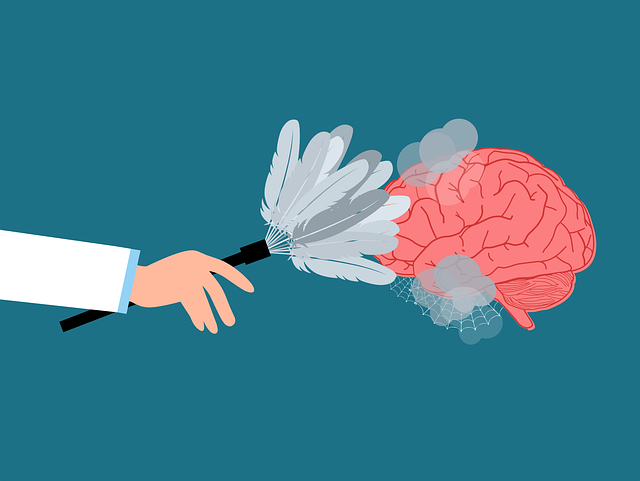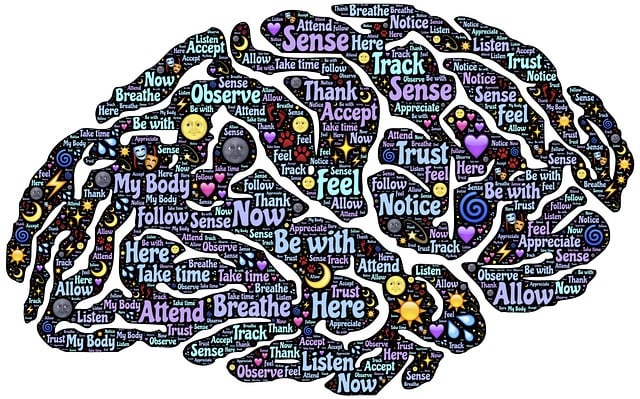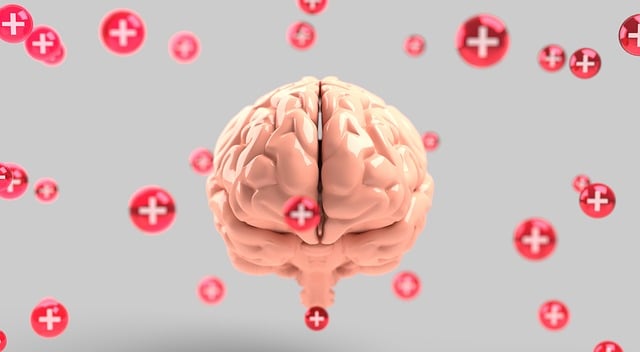In Highlands Ranch, EMDR Certified Therapy emphasizes risk management as a cornerstone of safe and effective mental healthcare. This involves identifying and mitigating potential risks through techniques like mindfulness meditation and social skills training, empowering clients with emotional regulation tools. A comprehensive approach includes assessing past interactions, implementing self-care practices for practitioners, and fostering open communication. Cultural sensitivity and crisis intervention strategies further ensure a supportive environment, enhancing therapeutic outcomes and promoting long-term resilience.
In the high-stakes world of mental health care, effective risk management is non-negotiable. This comprehensive guide equips Highlands Ranch EMDR certified therapists with essential tools for navigating complex scenarios. From understanding the nuances of risk assessment to implementing strategic mitigation tactics, this article explores a holistic approach to ensure safe and impactful therapy sessions. Discover best practices tailored to the unique challenges faced by mental health professionals, fostering a supportive and secure environment for healing.
- Understanding Risk Management in Mental Health Practice
- Developing a Comprehensive Risk Assessment Framework
- Strategies for Mitigating and Responding to Risks in Therapy Sessions
Understanding Risk Management in Mental Health Practice

In the dynamic field of mental health care, risk management is an essential component for ensuring safe and effective therapy. For professionals like those offering EMDR Certified Therapy in Highlands Ranch, understanding and implementing robust risk management strategies are vital to protect both clients and practitioners. It involves a proactive approach to identify potential risks, assess their impact, and develop comprehensive mitigation plans. This process is crucial in creating a therapeutic environment that fosters Emotional Healing Processes while minimizing the chances of adverse events.
Effective risk management in mental health practice includes fostering Emotional Regulation skills among clients. By integrating techniques such as Mindfulness Meditation into therapy sessions, practitioners can empower individuals to manage their emotional responses more effectively. This, in turn, enhances the overall safety of the therapeutic process, allowing for deeper exploration and recovery. Such strategies not only support clients’ immediate well-being but also contribute to long-term resilience, a key aspect of successful mental health management.
Developing a Comprehensive Risk Assessment Framework

In the realm of mental health services, particularly for professionals like those offering Highlands Ranch EMDR Certified Therapy, a robust risk management plan begins with a comprehensive risk assessment framework. This involves meticulously evaluating various aspects, including past and present client interactions, treatment methodologies employed, and potential triggers within the therapeutic environment. By integrating insights from social skills training and emotional regulation techniques, practitioners can proactively identify risks and mitigate their impact.
For instance, regular self-care practices and ongoing professional development sessions contribute to maintaining a healthy work-life balance, enhancing resilience against burnout—a significant concern in this emotionally demanding field. Additionally, considering the impact of stress on decision-making processes, therapists can ensure they remain alert and focused during sessions, fostering a safer and more supportive atmosphere for clients. This proactive approach, combined with effective communication strategies, is vital to creating an environment that promotes mental wellness, mirroring benefits achievable through well-produced Mental Wellness Podcast Series.
Strategies for Mitigating and Responding to Risks in Therapy Sessions

Mental health professionals face unique challenges when it comes to risk management, especially during therapy sessions. A key strategy for mitigating risks is to foster a safe and supportive environment that encourages open communication. This involves building strong therapeutic alliances, where clients feel heard, understood, and respected. For instance, Highland Ranch EMDR Certified Therapy emphasizes the importance of cultural sensitivity in mental healthcare practice, ensuring that therapists adapt their approach to each client’s background and experiences.
Additionally, professionals should be adept at recognizing and responding to potential risks promptly. This includes implementing crisis intervention techniques, such as emotional well-being promotion strategies, to support clients during distressing moments. By integrating self-esteem improvement activities and teaching clients coping mechanisms, therapists can empower them to manage their emotions effectively. These proactive measures not only enhance the overall therapeutic process but also contribute to a more successful and positive outcome for the client.
Mental health professionals in Highlands Ranch, especially those offering specialized services like EMDR therapy, must prioritize risk management planning for safe and effective treatment. By implementing a structured risk assessment framework and adopting mitigation strategies tailored to diverse client needs, therapists can create a secure therapeutic environment. Continuous evaluation and adaptation are key to managing potential risks, ensuring client well-being, and delivering high-quality care in accordance with industry best practices.














